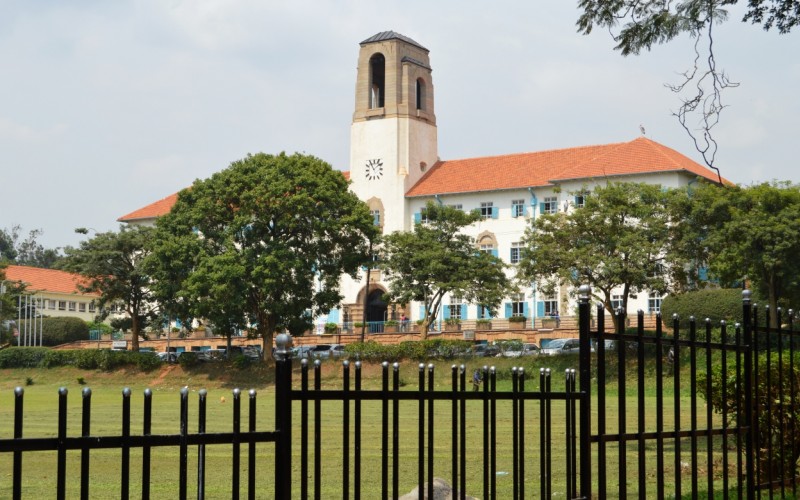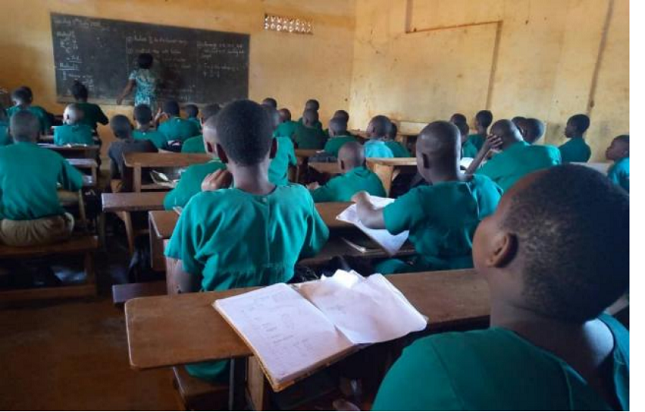Students in a science laboratory. Photo by The Observer
Rwanda has taken a decision to eliminate science practicals from their national examinations, citing long-standing concerns over the lack of well-equipped laboratories in schools. Rwanda’s Education Ministry announced the policy change, stating that starting this academic year, science practicals will no longer be a requirement in national exams.
Media reports from the country show that Barnard Bahati, the Director-General of the National Examination and School Inspection Authority (NESA) announced the position on Tuesday as students started their exams. The director general rather noted that students will be doing an “alternative practical” examination.”The alternative is a practical examination session that doesn’t involve the use of apparatus; rather, the students will demonstrate their practical knowledge theoretically or on paper,” Bahati explained.
This decision has sent shockwaves through teacher unions in Uganda who argue that this should be a wake-up call for Uganda, which is also grappling with similar challenges. Like Rwanda, Uganda is also facing difficulties in providing quality science education due to a lack of resources, mostly in rural and underserved areas, where schools face challenges in providing the essential resources for practical experiments thereby limiting students’ access to hands-on learning.
According to Filbert Baguma, the General Secretary of the Uganda National Teachers’ Union (UNATU), the issue of inadequate science laboratories and equipment in Uganda is a real problem that needs to be addressed. He contrasts this with Rwanda, where authorities are bold enough to confront the problem, whereas, in Uganda, the matter is merely discussed without taking effective action.
Reports from the Uganda National Examinations Board (UNEB) have also shed light on the matter. These reports, usually released annually after national examinations, reveal that many schools delay providing learners access to laboratories and science practicals until just weeks before their national examinations.
The reports also show that some students only encounter the necessary apparatus for the first time during their final exams, indicating a lack of consistent practical teaching and preparation in science subjects throughout the academic year.
For years, Uganda has been working on improving the teaching and learning of science subjects. However, it seems a lot needs to be done on all fronts. Baguma says there is a need to construct more laboratories and equip the existing ones in government-aided schools.
“The reality is that we need laboratories in our schools. We are facing numerous challenges in education, and these could have been avoided. Look at the current situation with the lower secondary curriculum; the government is only sending textbooks for senior three as the second term ends, which indicates poor planning. Similarly, why have a curriculum that requires laboratories when they are either not constructed or lack proper equipment?” he said.
In recent times, the government has increased the salaries of science teachers, but experts still express concerns that this measure alone may not be sufficient to overcome the challenges in teaching science subjects, particularly in practical aspects.
Aron Mugaiga, the General Secretary of the Uganda Professional Science Teachers Union, agrees that higher salaries for science teachers may not necessarily result in improved performance in science subjects. Mugaiga emphasizes that performance in science subjects cannot be solely attributed to teachers, as some students excel despite the circumstances. He points out that many schools currently lack the necessary equipment and instructional materials essential for an effective teaching and learning process.
During the release of examination results recently, the State Minister for Higher Education, John Chrysostom Muyingo said the government was taking measures to improve the situation by constructing and equipping science laboratories in public schools.
Regarding private schools, the Minister explicitly stated that they will not grant licenses to schools that do not have laboratories. However, Mugaiga says that the ministry’s plan concerning private schools might not effectively address the situation.
According to him, since private secondary schools enroll the majority of learners in Uganda, merely denying them licenses cannot be considered a comprehensive solution. The General Secretary believes that as the government plans to enhance science laboratories in public schools, there should be a concerted effort to extend similar assistance to private schools as well.
He stresses that addressing the equipment and laboratory needs in private schools is crucial to ensure that all students, regardless of the school they attend, have access to proper resources for learning and practical education in science subjects. This approach would help create a more balanced and inclusive educational system in the country.
Away from labs and equipment, Filbert Baguma argues another major problem is the acute shortage of science teachers in many schools. His observation is supported by a recent Human Resource Audit conducted by the education service commission, which revealed a staggering 42 percent vacancy rate, accounting for approximately 29,000 unoccupied teaching positions in post-primary institutions.
Rev. Prof. Samuel Abimelech Luboga, the ESC chairperson, confirmed the severity of the issue, particularly in secondary schools, where science subjects are significantly affected. During their visits to several schools, they found that some institutions had as few as five teachers, and some had only one or two science subject teachers, which is inadequate to meet the educational needs of the students.
Meanwhile, the situation in Rwanda may not be entirely new to Ugandans, as Uganda had previously implemented provisions for alternative practical papers in core science subjects for a considerable period. These papers were introduced to support schools that did not have adequate laboratory facilities to conduct practical exams. However, in 2018, the UNEB made a decision to eliminate these alternative papers.
The introduction of these alternative papers dates back to 2006, aiming to accommodate examination centers that faced difficulties in complying with the requirements when science subjects were made compulsory for all schools.
-URN





